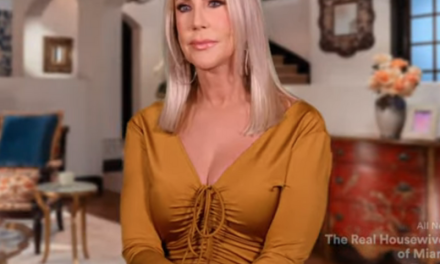
The decision to purchase a second home triggers a host of follow-up decisions, many of them financial. Of course, there is the question of how to pay for the home and the many ongoing costs of owning a real estate asset. That huge subject will be covered in a separate blog. In this installment, we’ll discuss how owning a second home can be viewed as an investment and how it might generate income.
Second Home as an Investment
Some purchase a “second home” purely as an investment and never live there. Many others consider the property they purchase as a home they actually live in for part of the year. They, too, need to understand the property’s investment outlook.
Real estate can fluctuate in value. Yet Americans have gotten used to values that have appreciated over time. While there have been downturns (the 2008 housing bubble, for example), owning real estate over the past few decades has generally been a winning proposition.
Of course, value appreciation also depends on one’s time horizon. Since many second homeowners purchase later in life, the time for such a property to gain in value will not be as long as for their primary residence. Therefore, expectations of significant value gains on a second home must be tempered. A worst-case scenario was experienced by residents of coastal Florida, who endured shocking hurricane losses.
However, if the main reason for owning a second home is to have a pleasant part-time place to live, then any value appreciation is a bonus.
Second Home as an Income Source
A second home can also generate rental income, which may be the only way some families can afford one. However, a second homeowner must consider some critical questions before becoming a landlord.
Can You Afford It?
Maintaining the property as a rental will result in extra costs. First, there’s the decision to rent through Airbnb, VRBO, or another short-term rental platform or go it alone. While Airbnb, for example, has brand recognition and handles marketing, most hosts pay a service fee of around 3% for every booking, while the renter pays between 10-15%. These service fees cover rental listing management on the platform website, customer service, liability insurance and other costs. Owners also need to abide by Airbnb policies.
If going it alone, the homeowner can make their own rules but must handle all the marketing, coordination and insurance costs. This can involve much work but will put more of the rental revenue in the landlord’s pocket.
There are other costs that the landlord will need to cover in either case:
- Prepping for renters – deep cleaning, decluttering and setting up locked owner’s closets and cabinets.
- Cleaning between rentals – many owners hire third-party vendors for cleaning.
Okay with the HOA?
If the home is covered by a homeowner’s association (HOA), renting may be subject to HOA rules. Local governments may also have laws regarding certain kinds of rentals.
Have Enough Time?
Landlording can be an exhausting task. First, time is needed to prepare the property to be a rental. Then, keeping the books, marketing, managing the tenants, and maintaining the property takes considerable time. For an extra cost, accountants, lawyers, or property management companies can handle many of these tasks.
Can You Handle the Stress?
Landlording can be stressful. It’s an “on-call” job where the homeowner needs to be available to handle tenant calls 24/7. Even without 2:00 AM phone calls, keeping up with the day-to-day demands of keeping the property in working order can be physically and emotionally taxing. Again, a property management firm can be retained to take on these tasks.
Comfortable “Sharing”?
How comfortable are you sharing your second home with strangers? Despite your best efforts, renters can inflict a wear and tear toll on the property. Also, most part-time landlords maintain a locked owner’s closet to store their personal items when renters are in the house.
What Rental Durations?
Will the property be rented on a long-term or short-term basis? Short-term accommodations (like Airbnb or VRBO) mean only a few tenants stay 28 days or more. Long-term means multiple months.
The advantages of long-term rentals are:
- Less Turnover – Fewer tenants translates into less marketing, scheduling, tenant screening, cleaning and bookkeeping cost and effort.
- Utilties – Long-term renters often pay their own utilities.
Short-term rental advantages are:
- Offload tasks – Short-term rental platforms like Airbnb or VRBO automate many tasks for a price.
- Increased profit – Short-term rentals can typically charge a higher per-night rate.
- Fewer “problem” tenants – bad tenants quickly move on in a short-term rental situation.
Moving Forward
If you’ve decided to become a landlord, here are some steps to getting started:
Business Planning
Renting your second home must be considered a business, so planning is essential for success.
- Make a spreadsheet that shows projected costs and income.
- Understand the audience/market you’re selling to.
- Identify support services like bookkeepers, accountants, property management and interior/exterior maintenance contractors.
- Know the laws that apply to your business.
- Create a marketing plan describing how the property will be promoted.
Prepare the Property
Set up the property for renters. Are all necessary furnishings, appliances, and electronics ready? Set up the owner’s closet and prepare a tenant binder that lists all the rules, property information, and emergency contact numbers.
Use Scheduling Software
Unless you’re using a platform like Airbnb, you’ll need software that manages the rental process, which includes everything from scheduling to payments. A property management company can also perform these tasks.
Owning a second home could have financial advantages, but making wise decisions about the money side of things takes careful thought and research to help maximize your returns and keep your stress level down.
If you missed the previous installments in this Second Homes series, it’s never too late to catch up.
Let’s Have a Conversation:
Have you thought about buying a second home as an investment? If you have thought about it, have you considered renting it for some time of the year? How would you manage such a property – via a third party service or by yourself?





